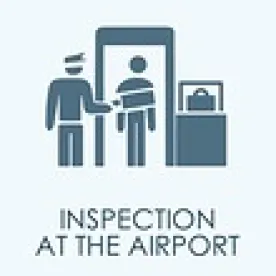Bradley International Airport now boasts direct service to Dublin, Ireland, Edinburgh, Scotland, and various destinations in Canada. Those entering and leaving the United States through Bradley and other international airports and border crossings should be aware of an important exception to the Fourth Amendment warrant requirement and the corresponding broad authority vested in U.S. Customs and Border Patrol (CBP) agents.
CBP agents can search cellphones, laptops and other electronic devices of those entering or leaving the country, regardless of citizenship and despite the vast quantities of extremely personal information stored on those devices. And CBP agents are searching more devices now than ever. Citing data provided by border patrol, the New York Times recently reported searches of electronic devices had quintupled from about 5,000 in 2015 to 25,000 in 2016.
Although the "border search exception" to the Fourth Amendment's warrant requirement is long-standing and well-recognized, recent advances in technology have raised new and significant privacy concerns. Unlike a short time ago when business travelers packed a few files relevant to their trip, almost all travelers now bring along a laptop, iPad or smartphone with the equivalent of several overflowing file cabinets of documents and data. An examination of any one of these devices could reveal more about a person's life than a search of every room of his or her home—and all without a warrant. Fourth Amendment jurisprudence has traditionally shifted to adapt to new technologies, as when the Supreme Court held in Kyllo v. United States , 533 U.S. 27 (2001), and United States v. Jones , 565 U.S. 400 (2012), that the use of thermal imaging devices and a GPS tracking devices, respectively, constitute a search and require a warrant. In keeping with the evolving interpretation of the Fourth Amendment, the historically broad scope of the border search doctrine, as applied to the warrantless searches of electronic devices, has rightly been called into question by judges and advocates. It is also subject to reassessment by virtue of the Supreme Court's recent decision in Riley v. California.
Republished with permission from the Connecticut Law Tribune. Originally published here.
Read other articles in the series:




 />i
/>i

